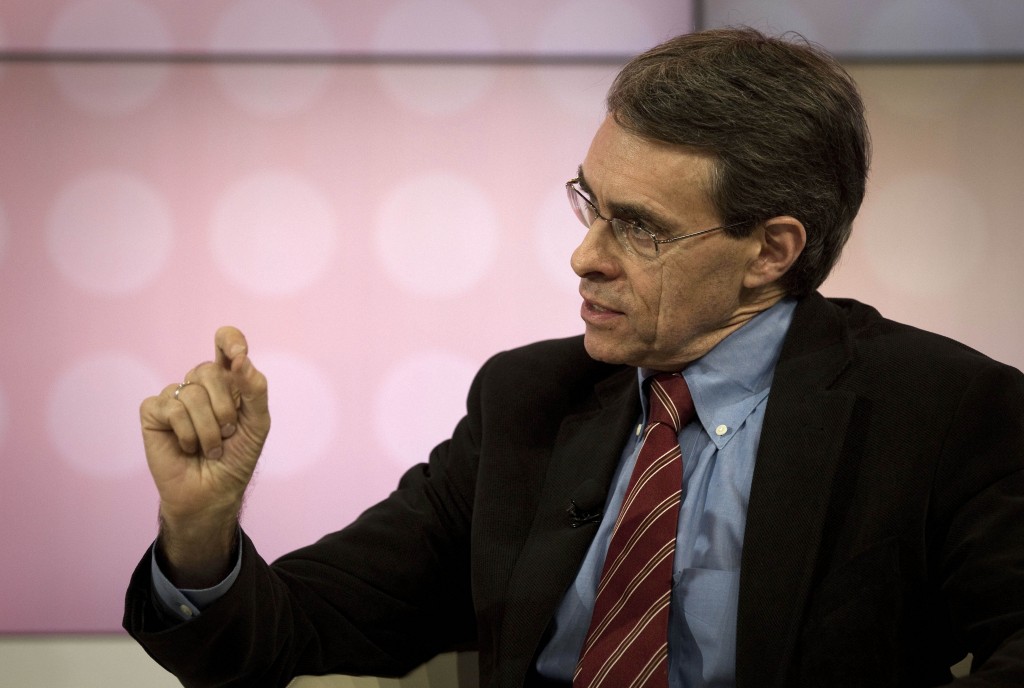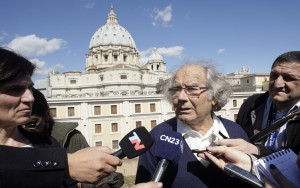Adolfo Pérez Esquivel among group criticizing NGO’s relationship with United States government.
BUENOS AIRES — US-based NGO Human Rights Watch (HRW) has come under pressure this week, after a group of notable public figures called into question its independence.
In an open letter to HRW’s Director, lawyer Kenneth Roth, the group — which features two Nobel Peace Prize laureates, including Argentina’s legendary human rights activist Adolfo Pérez Esquivel — says the organization’s “revolving door” policy with the White House had left it with “a conflict of interest.”
Criticizing the organization’s “close ties” with the US officials, the letter highlights HRW’s relationship with a former employee of the CIA.
“Human Rights Watch characterizes itself as ‘one of the world’s leading independent organizations dedicated to defending and protecting human rights,’” it reads. “However, HRW’s close ties to the US government call into question its independence.”
The criticism will sting HRW, which says in its mission statement it does “not accept government funds, directly or indirectly,” and heralds its “non-partisan” independence and “objectivity” in its work publicizing rights abuses across the world.
Other signatories include filmmaker Oliver Stone, peace activist Mairead Maguire and Hans Christof von Sponeck, a former United Nations assistant secretary general.
Ties to US government
The initial focus of the criticism is Tom Malinowski, now the Assistant Secretary of State for Democracy, Human Rights and Labour under US Secretary of State John Kerry.
Malinowski was previously HRW’s Washington advocacy director, a role he served until last year, when he quit to join Kerry’s team. It’s not the first time Malinowski has been involved with the White House either — he previously worked under former president Bill Clinton and former secretary of state Madeleine Albright.
But despite these links, it’s his views that the signatories seem most riled by. In 2009, Malinowski reportedly stated that “under limited circumstances” it was legitimate for the CIA to carry out renditions — seemingly an inappropriate position for someone working for a human rights organization.
It’s not the first time the organization has been criticized for its lack of independence.
The letter also picks up on Board of Directors’ Vice-Chair Susan Manilow, who describes on HRW’s website her close ties to Bill Clinton and events she has hosted for the Democratic National Committee. And the links do not stop there.
“Currently, HRW Americas’ advisory committee includes Myles Frechette, a former US ambassador to Colombia, and Michael Shifter, one-time Latin America director for the US government-financed National Endowment for Democracy,” the letter continues.
“Miguel Díaz, a Central Intelligence Agency analyst in the 1990s, sat on HRW Americas’ advisory committee from 2003-11. Now at the State Department, Díaz serves as ‘an interlocutor between the intelligence community and non-government experts.’”
While this, in no way, suggests HRW supports or condones the activities of the CIA, the question still needs to be asked — why did the organization ask a former CIA employee to be part of its advisory committee?
Hypocrisy and criticism?
It’s not the first time the organization has been criticized for its lack of independence. Even its founder, Robert L. Bernstein, has lashed out. In a 2009 op-ed for The Washington Post, Bernstein said HRW had lost its “critical perspective” in the Middle East and had repeatedly singled out Israel for special treatment, in comparison to other “less democratic” nations in the region.
The signatories to the letter also seek to highlight hypocrisy in the organization’s positions and public statements. One example concerns Syria. In February last year, HRW accused the Syrian government of unlawfully using missiles in the country’s war, but then didn’t speak out when the US threatened to do the same, unilaterally, in strikes against the government of Bashar al-Assad.
HRW has also faced criticism for its coverage of Latin America. In 2012, the authors observe, HRW criticized and campaigned against the government of Hugo Chávez when the country applied to sit on the UN Human Rights Council. Yet, they allege, it has not spoken up in the same way about the US government’s membership of the council, despite Washington’s practice of rendition and illegal detention.
The Herald spoke to Human Rights Watch’s office in New York this week and requested comment on the letter, but by press time last night, the NGO had not responded.
Why did the organization ask a former CIA employee to be part of its advisory committee?
Speaking out
Despite the accusations in the open letter, HRW has spoken out against the US government, most recently this year.
In a report published in January, it highlighted the leaked documents from Edward Snowden and the subsequent NSA surveillance scandal as a major error by Washington which could lead to “increased Internet censorship,” in countries with poor human rights records and a crackdown on freedom of speech.
Speaking to The Guardian at the time, Roth said that “serious missteps” by the US government had “compelled” his organization to speak out. Roth also directly criticized President Barack Obama’s reaction to the scandal: “What concerns us is the US government spying on ordinary people. He (Obama) didn’t say we have a right to privacy. He just said: we’ll tread more carefully.”
Evidently though, sporadic criticism of US policies such as this has failed to challenge the letter-writers’ perceptions. Their letter closed with a few suggestions as to how HRW could “assert its independence,” beginning with a suggestion that it close the “revolving door” it has with the US government and the people that have crafted its foreign policy. “As a bare minimum,” the signatories suggest a “cooling-off” period is appropriate.
The authors add that they concur with HRW’s largest donor, George Soros, who in 2010 said the organization needs to be seen as a “more international” and less of “an American organization.”
If HRW hopes to appease its critics, closing this “revolving door,” this could be a good way to start.
This article originally appeared in the Buenos Aires Herald, on Saturday, July 24, 2014.
© J. GRAINGER, 2014


